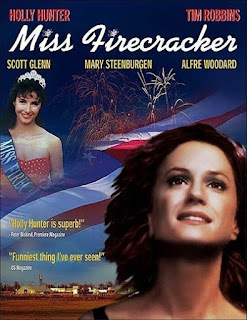I used to scour the Turner Classic Movies schedule each month for upcoming films that I couldn’t miss and post the highlights here for your reading and viewing pleasure! It’s been a few...years, but who’s counting? (All listed times are Eastern Standard, check your local listings or TCM.com for actual air times in your area. Each day's schedule begins at 6:00 a.m.; if a film airs between midnight and 6 a.m. it is listed on the previous day's programming schedule.)
After a delayed start, it is finally award season in Hollywood, which means it's time for TCM's "31 Days of Oscar" programming. Each day in April features films which were Academy Award winners or nominees and the films are being shown from A to Z, ending with Best Foreign Language Film winner Z on May 1. Coincidentally this was the gimmick in 2017, which was the last time I blogged about 31 Days of Oscar. By the way, if you don't have cable, you can stream films on the TCM app, but they don't stay available for very long after the air date, or usually find the films to stream or rent through other platforms. Here are my top picks for the month:
4/3, 9:45 PM - Carol (2015)
I was happy to see that TCM has included several movies from the 2000s in this year’s 31 Days line-up. The canon of classic films is not a fixed list; it should always be re-evaluated and refreshed as new art is made. Carol was nominated for 10 Academy Awards, but notably not Best Picture. Director Todd Haynes combines the lush elegance of a Douglas Sirk melodrama with contemporary storytelling in this romantic drama about a shopgirl and a housewife drawn to each other, but restricted by 1950s conventions.
4/7, 10:15AM - Gaslight (1944)
“Gaslighting” has become a ubiquitous buzzword in the last few years. But how many people have actually seen the film that gave us that term? Technically, “gaslighting” means when someone lies to you so that you begin to doubt your own sanity and then you can be committed to an asylum and your tormentor can steal your aunt’s jewels. Ingrid Bergman won Best Actress for her performance as a woman driven mad. The film received seven nominations in total, including Best Picture, which it lost to Going My Way. Keep an eye out for a young Angela Lansbury in her first film role as Bergman’s maid, she received a Best Supporting Actress nomination.
4/10, 3PM - Hope and Glory (1987)
The title may sound generic, but this charming and warm story of British civilian life during WWII will stick with you. Told through the eyes of a young boy, the film is based on writer-director John Boorman’s own experiences during the London blitz. The film received five Oscar nominations, including Best Picture, but did not win any awards; in fact it lost in almost every category to that year’s big winner, The Last Emperor.
4/18, 8PM - Nebraska (2013)
Omaha-born Alexander Payne is one of my favorite contemporary filmmakers. His films - including Election, About Schmidt, and Sideways - depict familiar, everyday people with biting dark humor. Nebraska is no exception as the story of a cantankerous elderly man and his adult son on a road trip to collect sweepstakes winnings. While several of Payne’s films have earned Oscar nominations, 2013’s Nebraska received the most with six. Surprisingly, it did not win in any category, though lead actor Bruce Dern and Phedon Papamichael’s black and white cinematography were certainly top contenders that year.
4/23, 10:30PM - The Red Shoes (1948)
This film about a dancer torn between a devotion to her art and a desire for a conventional life was the 10th collaboration of the celebrated filmmaking team of director Michael Powell and producer Emeric Pressburger. It was nominated in Best picture and four additional categories, winning much-deserved awards for the art direction and the score. It is visually dazzling, particularly the ballet sequences starring real-life ballerina Moira Shearer. Anton Walbrook, a favorite character actor for Powell & Pressburger is also particularly good as Lermontov, the impresario who gives Shearer’s character her big break.
4/28, 1:15AM - The Third Man (1949)
If you’ve never seen this one, set the DVR, get the app, whatever you need to do - just watch it. This atmospheric post-WWII noir follows an American investigating a friend’s suspicious death in Vienna. Though Orson Welles gets all the memorable lines, this is really a Joseph Cotten film. Cotten came to Hollywood with Welles as a member of Welles’ Mercury Theatre Company and after a large supporting role in 1941’s Citizen Kane, Cotten transitioned into a successful, decades-long movie career (including a role 1944’s Gaslight). The film received nominations for direction and editing, but the striking cinematography garnered the film’s only win.





















